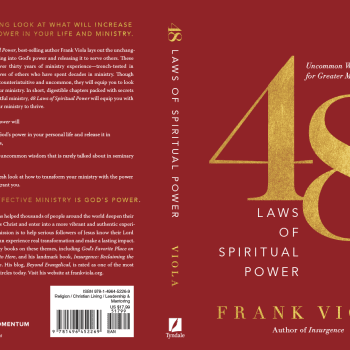There is a poignant sadness in the recent story of the 19-year-old Somali immigrant fingered as an aspiring bomber in an FBI sting in Oregon. I don’t dispute the FBI’s method or purpose in running the sting; its agents appear to have caught someone with a genuine intention to commit an act of terrorism. Catching such aspiring perpetrators before anything blows up is always to be preferred.
But this son of Somali immigrants, a naturalized American who came to the U.S. at the age of five, makes an informative case. In press interviews, one or two of his high-school classmates mentioned an episode of unusual behavior, but to most of them, he came across as a thoroughly American kid: a class clown, a dabbler in music, a big fan of the Portland Trailblazers. His attendance at a local mosque was not particularly devout or regular, which would distinguish his religious observance very little from that of most Christians and Jews. An off-and-on college student, he has been living the life of an American teenager.
What strikes me about his case is not that he didn’t “look like” a terrorist. It’s that our society -- its organizations and authorities -- seems to have been a void in his philosophical environment, except for the FBI sting itself. He is, after all, only 19. Nothing about his personal history suggests that he’s a hardened, “lifestyle” jihadist. But was there any kind of influence, over the course of the fourteen years he has been in this country, which would have counteracted the siren call of jihad with positive, compelling affirmations of America and our culture?
And would such an influence have taken a personal interest in Osman Mohamud? Apparently, only the FBI knew him well enough to know that he was involved in a jihadist bombing plot. I don’t think reporters on this incident intend to create the impression of a young man adrift in a culture that is not very interested in him, a culture that springs into action only when he seems to be a threat. Nor am I here to judge anyone who knows him. The void coming into view in Mohamud’s case is a cultural one: a societal abdication of the responsibility to cultivate a commonsensical satisfaction with -- even joy in -- one’s citizenship and one’s estate.
I’m guessing that Osman Mohamud was never a Boy Scout. I’d be willing to bet Mohamud’s public school curriculum was focused on injustice and inequality in American history, and on man-made “global warming” when it came to current events. He may have been taught that terrorism is a mean thing to do to other people, but I doubt that any effort was made to inculcate in him an understanding of why violent expressions of resentment are not just wrong because they are violent, but unjustified because there is nothing noble or righteous about resentment. In the life of a young immigrant, what institution of our society would have been present to teach him our culture and beliefs as positive, useful things?
It has come to seem alien to talk about doing that, as if it amounts to an infringement on freedom of thought. Children are taught today that democracy is a good thing, but mainly because it is supposed to facilitate the throwing off of cultural shackles. Although American society has largely become the 1960s counterculture, the animating idea that there is a need to deconstruct a dominant, oppressive societal tradition has today attained the status of an intellectual shibboleth. The mental and emotional state desired for the educated American increasingly amounts to this: being desperately against a laundry list of other people’s bad habits and intentions, which are predestined by the others’ positions in a dysfunctional socioeconomic organization.
The impact of the void here is not only on immigrants. My point is more fundamental than the point that cultural assimilation is important for successful immigration. That point is valid, but it goes deeper than that. The emerging dysfunction is cultural and generational, and it is not deliberately chosen but induced. Many parents continue the practice of teaching a holistic set of moral beliefs to their children, but in fewer and fewer realms of public life is there any sense that the older and wiser are interested in the character of the younger. In shaping the younger people’s perspectives on life and citizenship, the institutions that bring the generations in contact tend to give the young only lists of discouraging “facts” to contemplate, along with a few pessimistic and tendentious theories -- a trend that amounts to an anti-character effort.
Good character is inherently positive and optimistic. Despair cannot keep us doing the right thing day after day. But despair is the mindset in which our organized society is increasingly leaving the younger generations. It strikes me very powerfully that when young Osman Mohamud began spouting anti-Western jihadist boilerplate, our society was not organized to engage him on the philosophical element of his repetitious sloganeering. It wasn’t organized to take an interest in him: in his character, his prospects, or his human soul. It was organized only to perceive him as a threat and set the FBI on him.
12/6/2010 5:00:00 AM





